Opinion: The attendance policy at MCHS is too strict
Though the rationale for assigning tardy detentions seems logical, the punishment does not fit the crime
Administration uses tardies and detentions to deter students from arriving late. But are there other ways of encouraging students to arrive on time that are less punitive?
November 25, 2019
It’s snowing outside, and a West campus student leaves her house early to safely get to school on time. She even skips her usual morning coffee trip. With ten minutes to spare, she pulls up to the street the school is on, but it is completely backed up on both sides. The student sees that the light is green, but no one is moving. The clock ticks down. She finally gets into the parking lot’s one entrance, which doubles as the only exit, and finds a spot. At this point, she is already late for school. Knowing she’ll get a detention as soon as she walks in the door, she considers just going home and calling in sick to avoid it, even though she knows she has a math test she’ll have to make up.
When an attendance policy’s punishment is so severe that students consider staying home rather than being late to school, it warrants reconsideration.
Holding students accountable for being late to school makes sense. Administration believes that students know what time school starts and should plan accordingly. For all intents and purposes, the bell rings at 7:20 for East and 7:30 at West. Missing a class within its first 20 minutes results in a tardy; after missing the first 20 minutes of a period, a student receives a cut. Administrators sometimes exempt tardies in special cases, especially when inclement weather impacts large numbers of students and up to one hour, but not in every case.
Detentions have deadlines, but students may have job or family commitments that make detentions difficult. When students do not serve them or receive additional tardies, they are given additional consequences. Though staff and assistant principals are often willing to work with students to fulfill these obligations, they can build up to an ISS (in-school suspension). Some students skip school instead of receiving more tardies or detentions, but this causes more problems; instead of just missing the first couple of minutes of first period, they miss all classes all day and have to catch up on that day’s content another time, and they fall behind.
This doesn’t just apply to walking in the building late, however. The five minute passing period doesn’t give them enough time to arrive in first period. If a student gets to school as soon as the first bell rings, which is on time, then they have to go to their locker on the other side of the school. Many lockers are faulty and don’t open on the first try. Then, they have to walk to their classrooms, however far that room may be from their locker. Students could have to use the bathroom because they left their house in a rush and didn’t have time to before they left. Students can be marked late to first hour anyway, even with their effort to make it to school on time, and get detentions, regardless if they were really late.
Both campuses are too large to get from one end to the other with a locker stop in between in five minutes, especially with the student hallway traffic and the parking lot traffic. The argument can be made, “just get to school earlier!” but for many students, this is easier said than done. Many parents and older siblings work and it is very important for them to be at their job on time, especially if they’re a low-income family. If this parent or sibling drives them and the ride isn’t the student’s full responsibility, they will be marked late.
The majority of detentions given out are due to tardiness. Students who one would never expect to receive detention have gotten them due to the policy. When people think of detentions, they normally think of a room full of students whose misbehavior needs to be corrected. For students who are just barely late, the behavior they are being punished for may be out of their control.
The consequences for being tardy are too harsh. Students can be marked tardy if they walk in as the bell is ringing. School should start later or students should be given more leniency in the morning. More students should join the handbook committee, which meets every spring, to voice their concerns and make changes to policies like this.
This story was updated at 11:40 AM on November 26, 2019 to clarify facts that may have been previously unclear.



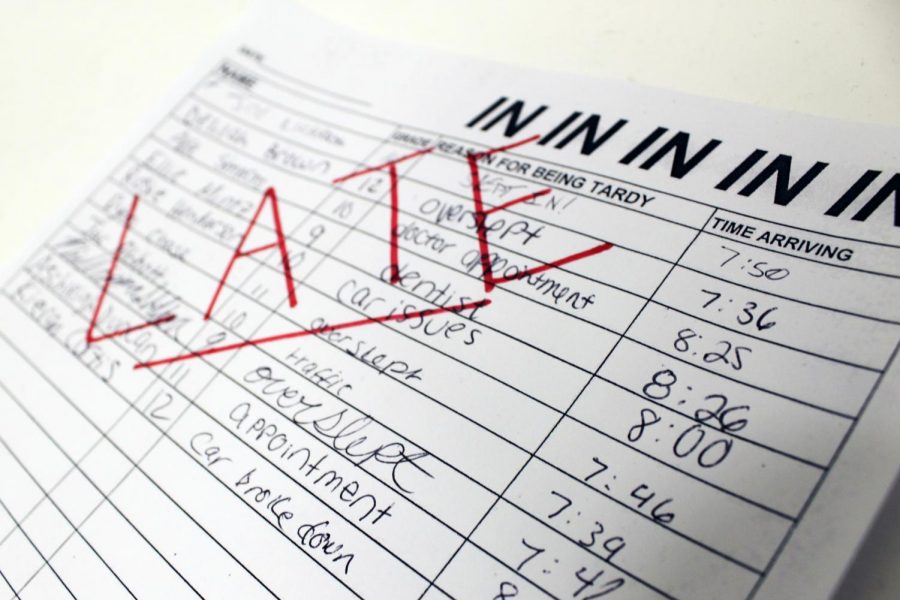









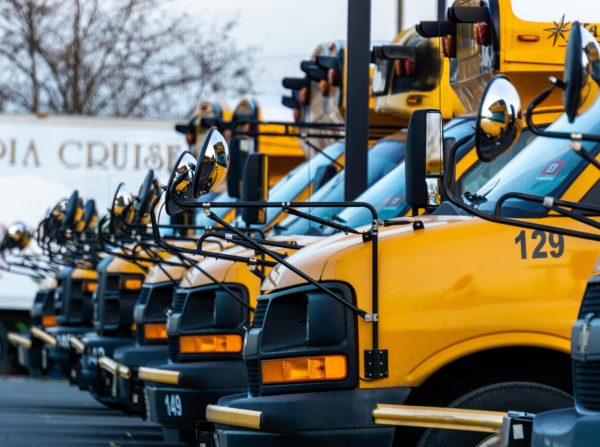
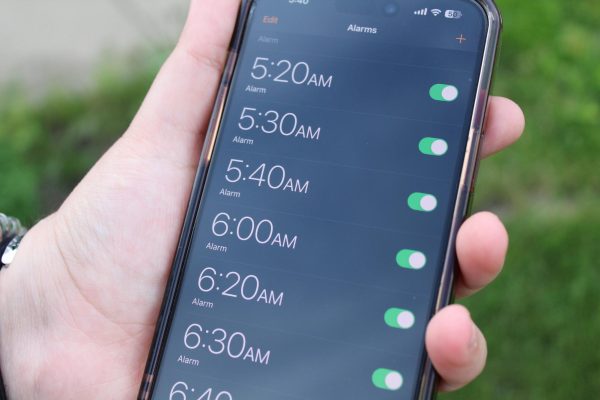



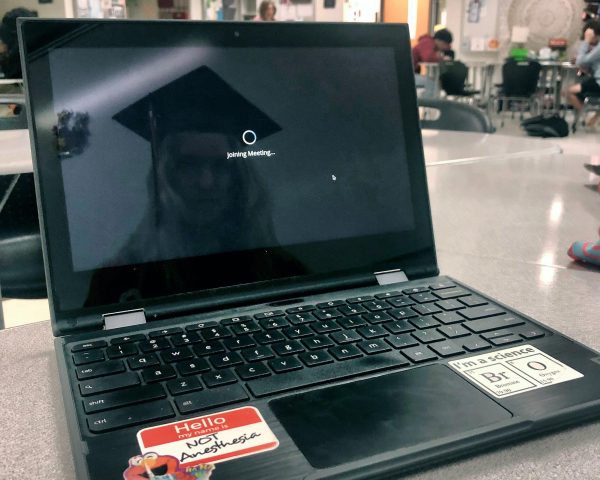

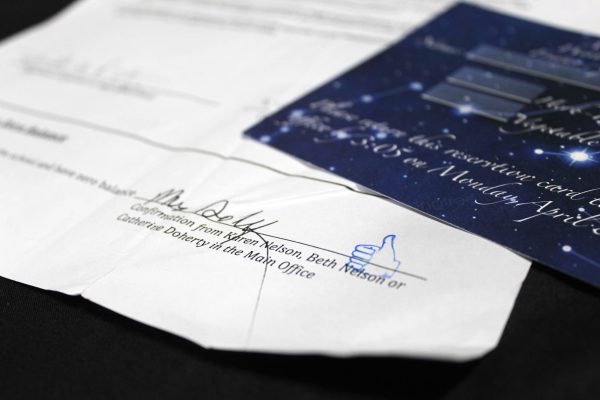



Angela • Jan 21, 2021 at 9:28 am
The policy isn’t it. Considering the times now. I’ll admit I’m terrified of getting in trouble. And that’s on operant learning…lol. Anyway, considering during these times it’s best to stay at home anyway instead of going to school and families could be struggling financially as well (which might be a little off topic but intend to do that a lot), you would think the assistant principal would have some kind of leniency. I know I get to school late and I acknowledge that. Bet when you get to school right on time, then get interrupted by the pledge, and end up being 2 minutes late to class… it’s not like I missed the answer to world piece. No… I simply get to class and everyone moves on with their day. She said she didn’t want me to fall behind in learning as why she threatened isap and that it’s apart of the student handbook… but my grades are not plummeting from missing 2 minutes. And now I’m just scared out of my mind. Because I’m on the edge of one more tardy then I go to isap. That’s really over the top. Do you want me to learn or do you want me to be absent Bc Ik I’ll be late to school. Do you care that at least I made it here and once I’m here I’m not late to other periods or do you just want me in isap? Many spelling errors but this comment was made out of fear and probably no one will read this but I need to put it out there Bc I’m sad as a meat ball on a stick because I know I won’t be able to be early every single day. This also has nothing to do with this but i understand if she called me to her office if my grades were plummeting but no… I’m a fiend for learning and my grades are fine.
Sarah • Feb 4, 2020 at 5:58 am
A vast portion of the issue right now on West campus is with the parking lot & construction making it take a small eternity to get IN to the school (which is a problem for everyone, and a problem wildly outside of students’ control). There definitely should be a reconsideration of policy or some way in place to acknowledge that in this case, the responsibility is on the school to BE accessible enough that students can… you know. Get in.
Yes, being on time is critical, and yes, when your ‘adult’ life is impeded by construction, you get up an hour earlier for six months. But children shouldn’t have to waste an hour of their lives every day to not get in trouble for an obstacle the school has (knowingly) placed in their way.
Tardy detentions are to deter misbehavior and dawdling, and when the school can tell very clearly that their own physical bottleneck limitations are causing a HUGE proportion of late 1st hour students (who would not be late otherwise), it has nothing to do with behavior, in which case a “punishment” is quite inappropriate and nonsensical.
Kennedy • Nov 26, 2019 at 9:04 am
I’ve been late to school a few times within the past week due to weather conditions, and the issue of having to wait for all of my siblings to be ready before I can leave, and this has caused some problems. I never thought that I’d get a detention because I try my best to be responsible and respectful, but I got one for being late to school for reasons that I couldn’t help. There have been multiple days where I was 10+ minutes late to 1st period because the security guards made me stand in a long line just to check in for being one or two minutes late to school.
I understand the need for students to be on time for school, and I also understand why they feel the need to have consequences for students who are late. But I don’t think that the current policy is fair to everyone.
Nicole • Nov 25, 2019 at 6:15 pm
Feel this. I went to West Campus and there were times my ride wasn’t reliable and by the time I realized they weren’t coming, I’d be pulling into the lot the second the bell was ringing and had to explain to security I didn’t have a pass but needed to get to school, thankfully he cut me some slack. However my first period math teacher never did.
I used to work for Starbucks and my boss was a stickler also on “time management.” This drove me INSANE because some shifts you had to wait 5 mins after the hour to clock in (so you would avoid having to take a lunch) others we’d have to clock in on the dot. LIKE WHICH IS IT?! Keep it the same!! I’d have 20 shifts of having to clock in 5 mins after and I’d get screamed at for being 2 mins late to a shift that was on the hour.
I now work for a company that doesn’t care what time you get there, as long as you come in at a decent time and get all of your work done.
I can’t wait for the day that the world realizes life is too short to keep rushing to everything in life.
Doug Wilsman • Nov 25, 2019 at 1:52 pm
Old alumus (class of 75). It would be interesting to see the full, written policy, in conjunction with this story.
I used to drive school bus. This story reminds me of something one of the job coaches told my students while we waited for one of them to appear. She reminded this bus full of seniors that part of the education they were receiving was training for “real world” jobs. On-time performance was the expectation in most places.
Attendance policies are important. That said, a little leeway for inclement weather isn’t an unrealistic expectation. Maybe a statement from the Dean could provide some counter-point.
I had “problems” with attendance when I was a senior. Policy was 15 absences meant repeating the semester. I contracted pneumonia near the end of Q3. The dean at the time cut me some slack, and I graduated with my class. Does that sound like your dean today? Good article, and good luck in your futures!